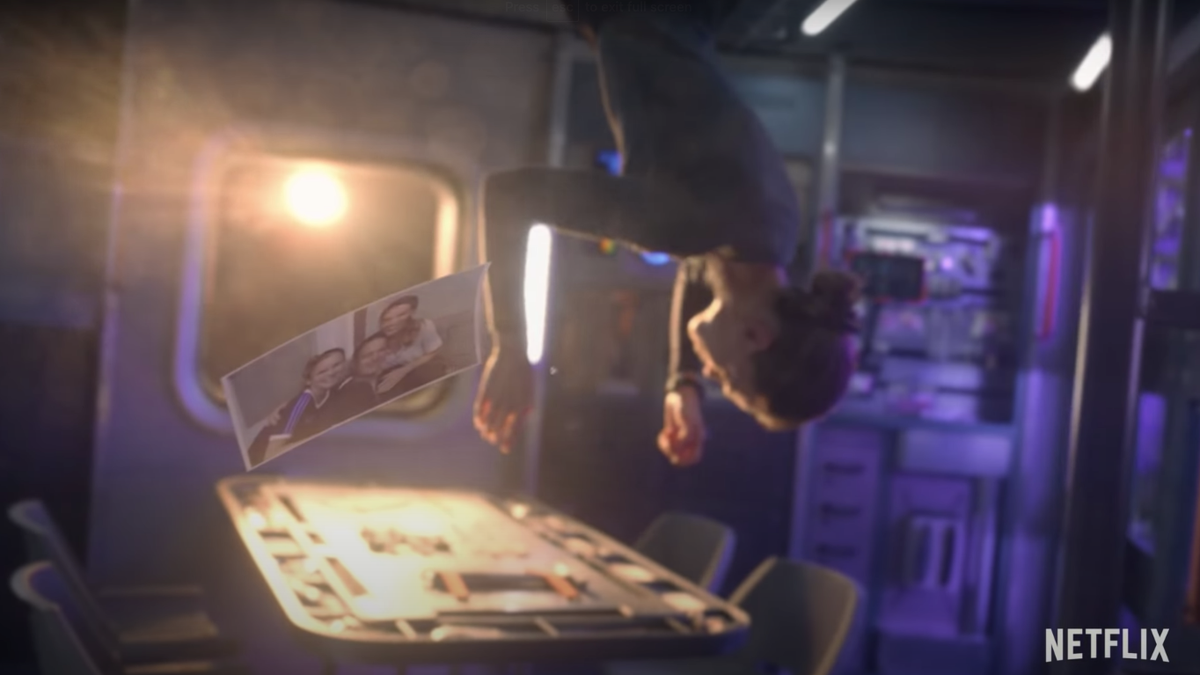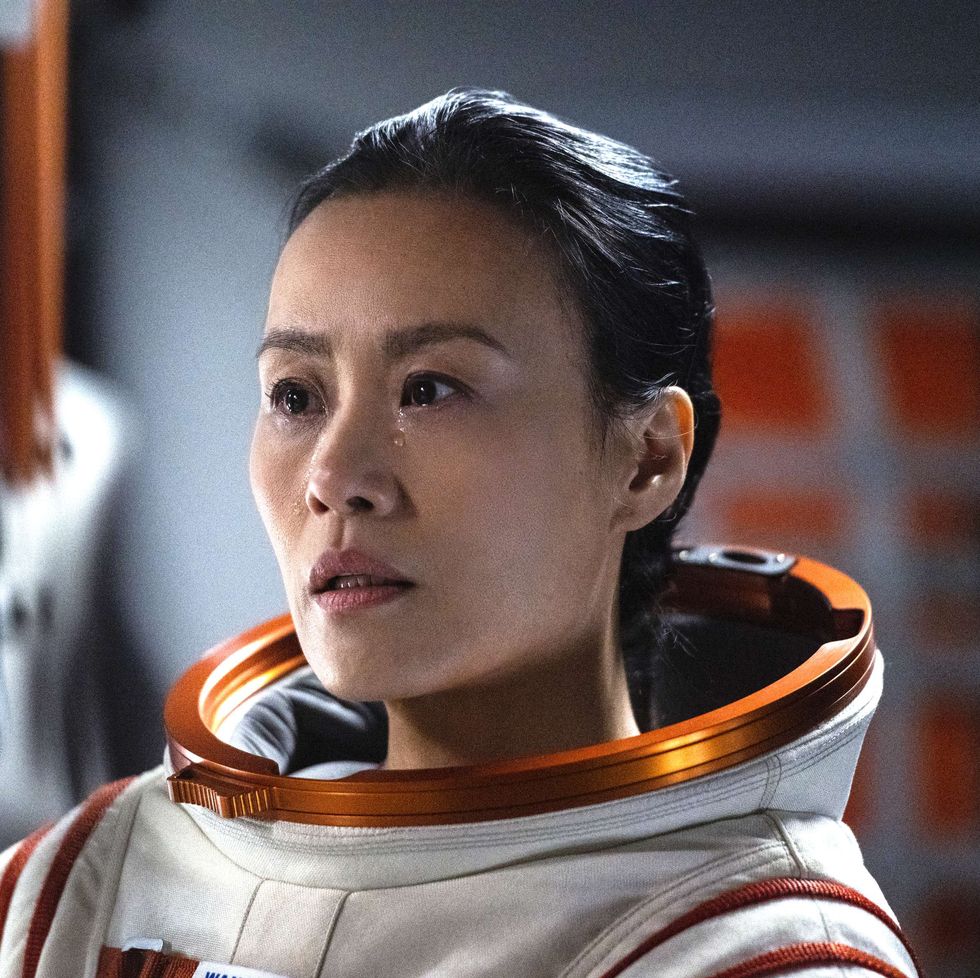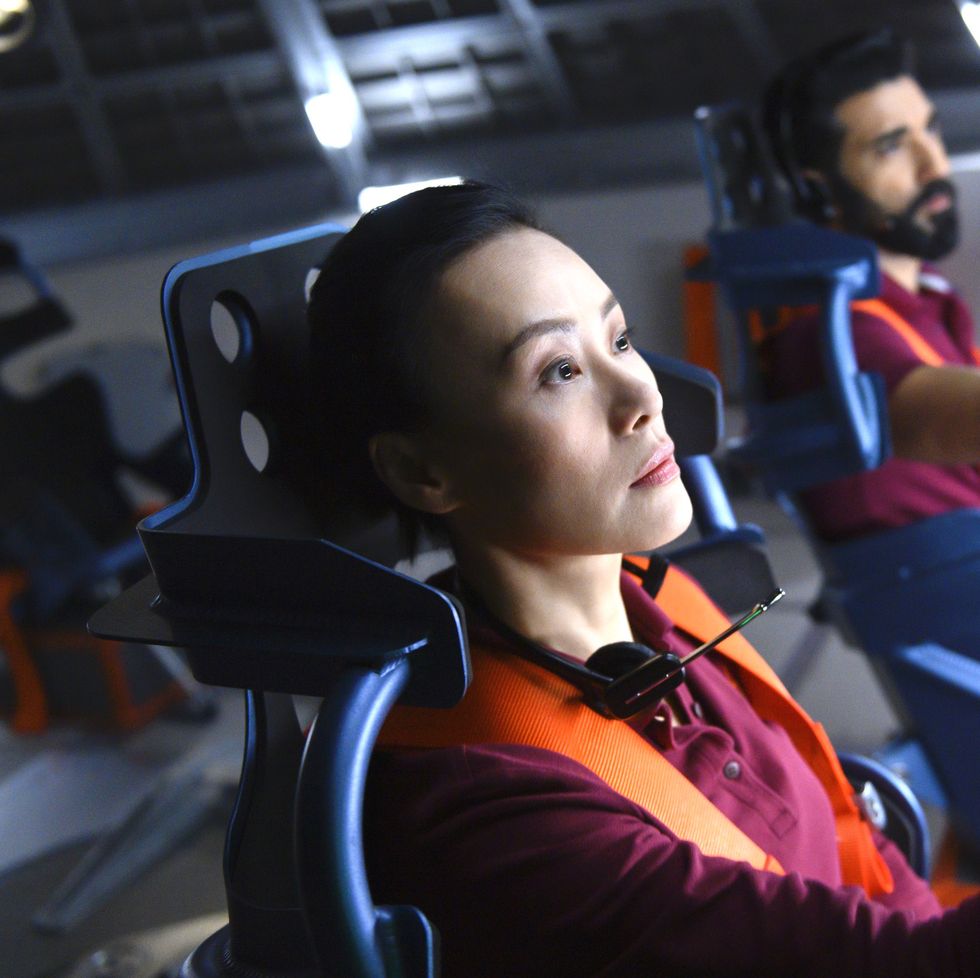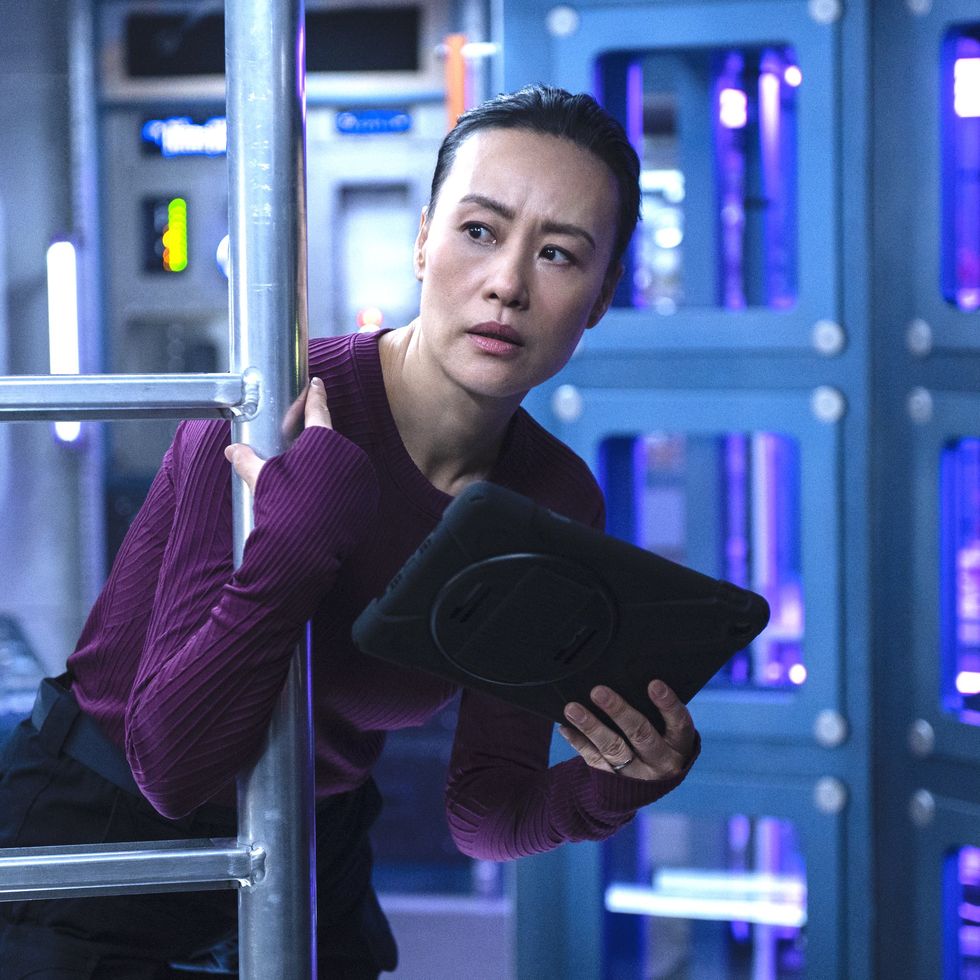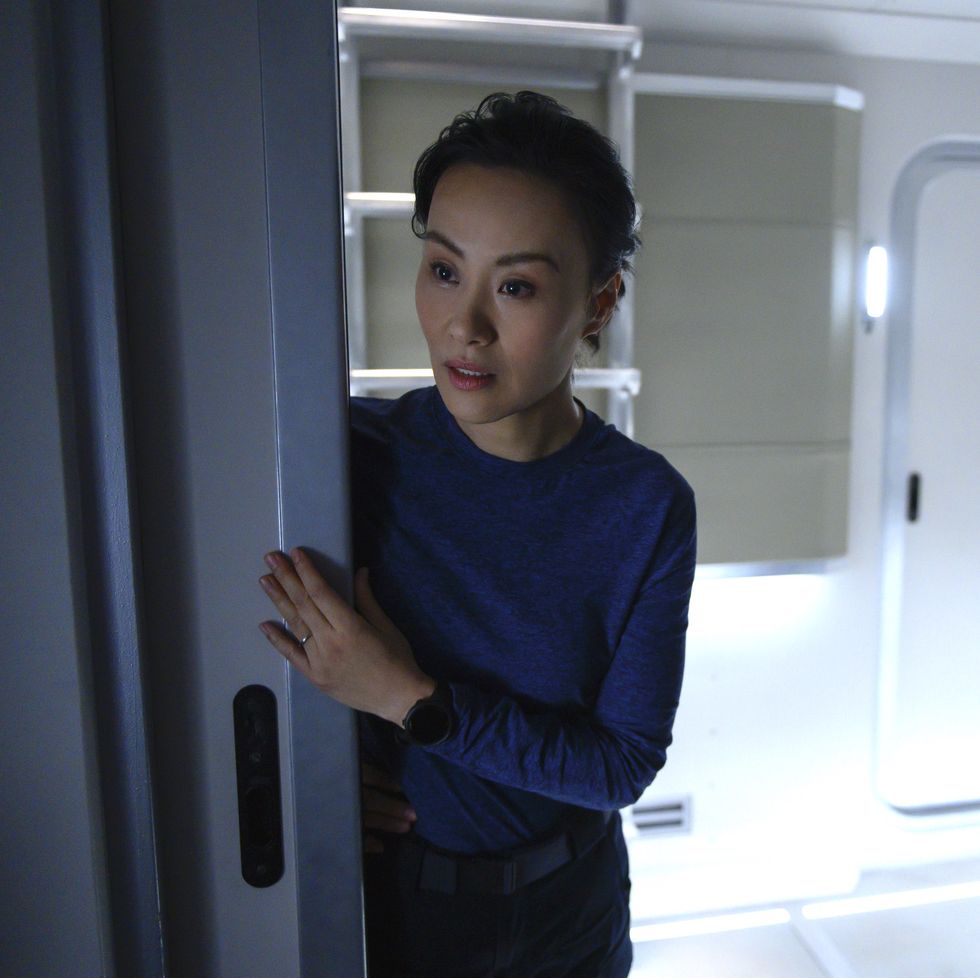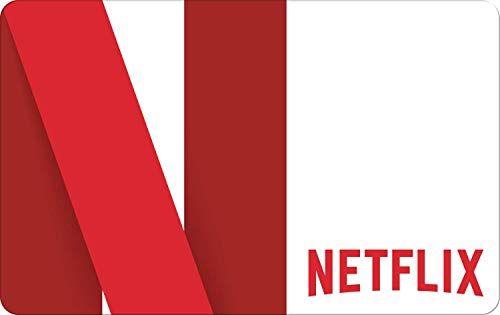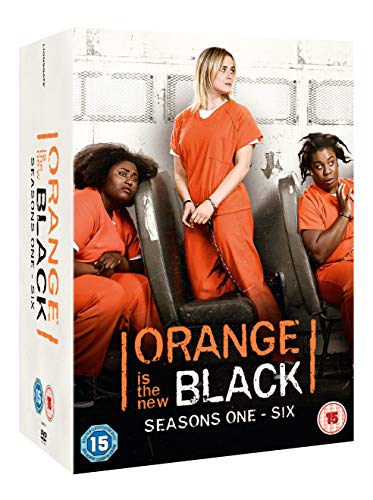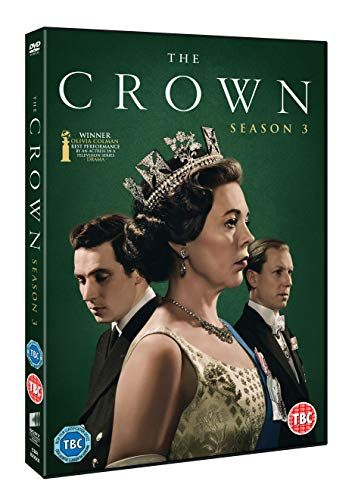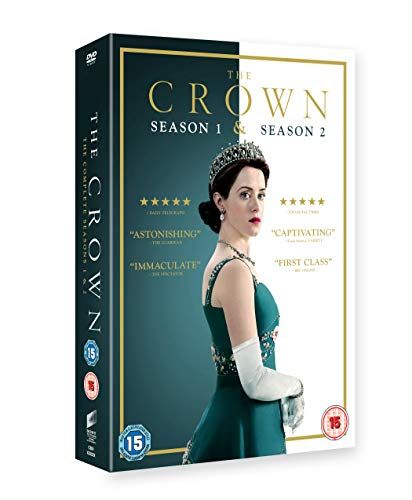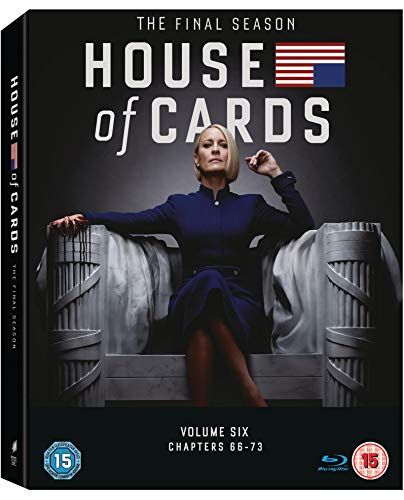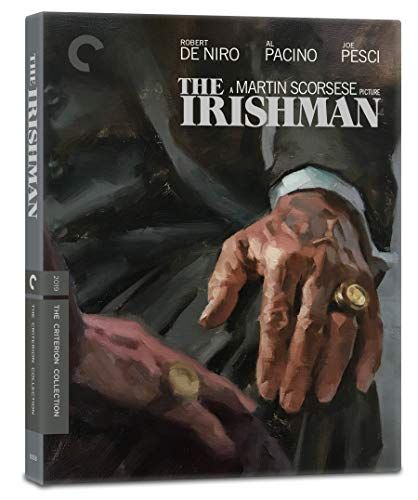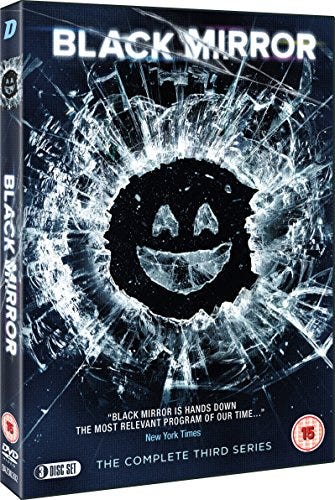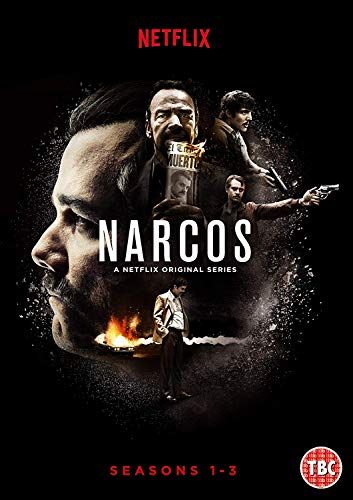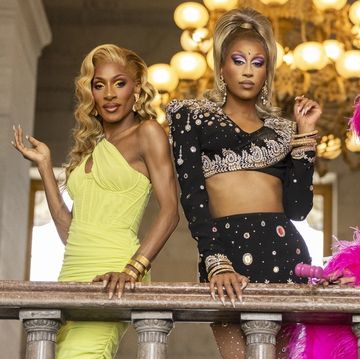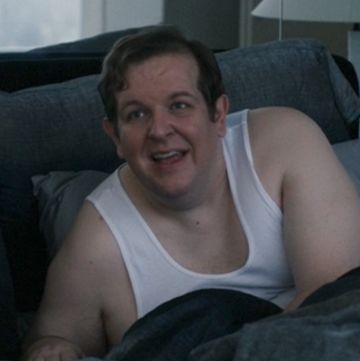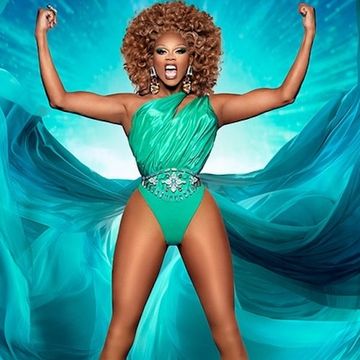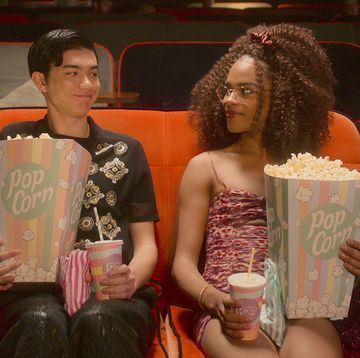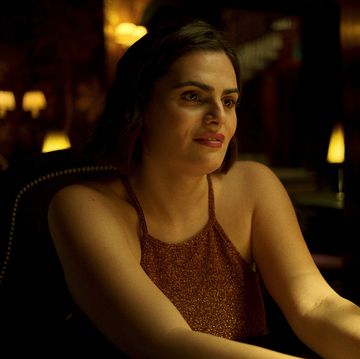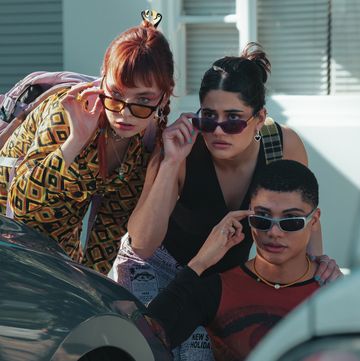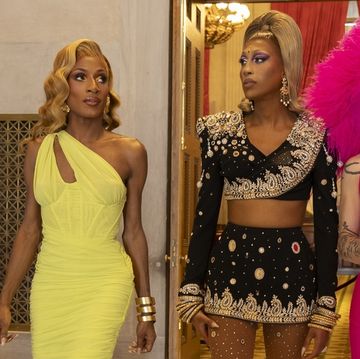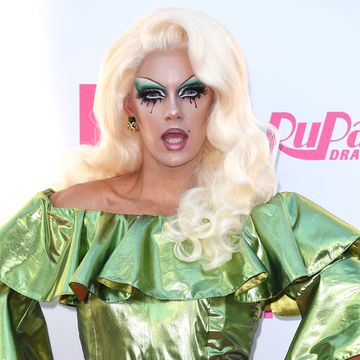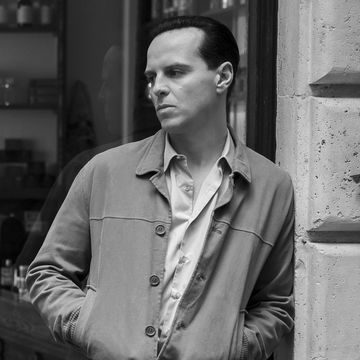Away season one spoilers follow.
NASA says the reason why we explore space is "to address fundamental questions about our place in the Universe". That's true, but missions into space aren't just about our place as individuals in the wider cosmos. This kind of exploration also speaks to how we position ourselves in relation to others, whether it be through competing as nations or uniting as a species.
Netflix's Away is concerned with how space travel impacts these interpersonal connections more than most. Created by Andrew Hinderaker, the series follows astronaut Emma Green as she prepares her crew to land on Mars. To achieve this historic first, an international team is assembled, combining Earth's brightest minds for humanity's most important mission.
Like most stories of this nature, an American predictably takes the lead, and it's her story which forms the backbone of Away. Across ten episodes, the show jumps back and forth between Hilary Swank's character and Emma's family who are waiting for her back at home. While this framing device works far better than it has any right to, the writers thankfully don't limit themselves to just Emma's experience.
At least one episode is dedicated to each member of the crew, exploring how their backstory impacts their lives on the ship, and these threads are then woven into the central narrative too, telling a far more international story than you might expect.
Fittingly enough for a team like this, there's no weak link in the bunch. Mark Ivanir is a particular standout in the role of a Russian cosmonaut called Misha Popov, but the true hero of this story isn't him or Emma. It's Lu Wang, played to perfection by Chinese acting legend Vivian Wu.
At the beginning, Wu's chemist comes across as rather cold, playing into the kind of American stereotypes which often plague characters born into communist societies. However, as the series unfolds and the crew move ever closer to Mars, we soon discover that there's far more to Wang's steely resolve than just national pride.
Up until episode three, all we really know about Lu is that she left her husband and son behind to embark on this mission and represent China on a global platform. However, through delicate and incredibly moving flashbacks, viewers soon learn that Wang's heart actually belongs to someone else, another Chinese woman working at NASA.
Lu first met Mei Chen (Nadia Hatta) when she signed up for the Mars mission a couple of years earlier. At first, Chen helps Wang master English through the art of karaoke. As these sessions continue, Lu gradually lets her guard down, and even reciprocates by teaching Mei how to write using traditional Chinese calligraphy. It's during one of these lessons that the pair finally learn to let go and embrace their feelings for each other, spending just one night together before Wang left for Mars.
Western culture often stereotypes Chinese people as competent but cold, and at first, it looks like Away is playing right into that unfortunate perception. Thankfully though, it soon turns out that the show sets this cliché up to then dismantle it with the revelation that Lu is queer.
A report by the United Nations Development Programme in 2016 found no more than 15% of LGBTQ+ people in China come out to their close family members. Given the current state of queer rights in China, it's no wonder that Lu even keeps her fellow astronauts in the dark about her true feelings – until her secret comes to light thanks to rumours spread by the mission's previous commander.
While Jack didn't mean for this to happen, it's typical that a white, straight man wouldn't take the weight of these feelings into consideration, essentially outing Wang in a poker game. Hilary Swank's character is rightly outraged by his actions, condemning Jack for talking behind Lu's back just to "score some points with the boys".
To make up for this, Jack and Emma break protocol to set up a private call between Lu and Mei that the Chinese authorities can't monitor. In this call, Mei reveals that she's been transferred to a desk job because her manager found Lu's love note in her desk and decided to sweep their relationship "under the rug" to avoid national embarrassment.
"It’s because I love you that the mission was taken from me," Mei cries, but she's not resentful. Instead, she looks through a telescope and tells Wu: "Just because I can't see you doesn't mean I'm not looking right at you."
The pair try to memorise each other's voices, knowing that they might never have the chance to speak again. After they share their goodbyes, even more tears come when we learn that Wu wears a ring Mei gave her which bears the inscription "Women hold up half the sky".
This phrase was first proclaimed by Chairman Mao in 1949 when he fought to harness the economic potential of women following the revolution. Presumably, Mao never intended for these words to represent the strength of queer women specifically, and this lends even more power to the way Wu and Mei reclaim them here.
Just like women are still often on the periphery of Chinese politics, queer women in particular are still on the periphery of Chinese society at large. Dazed writer Barclay Bram suggests that this isn't because the Chinese Communist Party doesn't believe in human rights. Rather, "they emphasize collective rights over the rights of the individual," securing a so-called stability by championing "traditional" Chinese families over queer relationships which could impact the country's future population.
The article also goes on to report the phenomenon of Tongqi (同妻), where women inadvertently marry gay men because of societal pressures. In Away, this scenario is reversed (Tongfu: 同夫). Whether Lu always knew she was queer or not, she still stays with her husband for the sake of her son, and to help secure her career.
Following that heartbreaking farewell in episode three, Lu's relationship with Mei and the impact it has on her family isn't explored much until the finale, when her superiors command Wang to take the first photo on Mars with her visor down, obscuring her face entirely. Essentially, China wants an 'everyman' (or woman) that its citizens can relate to and be inspired by rather than an actual figurehead like Lu.
Once again, the Chinese authorities only think of the collective rather than the individual. It's like Wang herself says: "I do not exist. I only exist if the Motherland exists." Given her status as a successful queer woman, this proclamation is even more relevant to China at large.
In December 2015, China ramped up its already intense censorship regulations with new directives which included a ban on "abnormal sexual relationships and behaviours". Same-sex relationships were categorised under this umbrella term, along with incest and bestiality. While Away never comments on this directly, parallels can certainly be drawn between this and how Wang's superiors also try to censor her identity.
Following Emma's encouragement, Lu proposes a deal to the Chinese government: she'll take the photo as requested if Mei is reinstated in mission control. Their response is a "maybe", which in Wang's mind is an obvious "no". So not only is she forced to erase her involvement in humanity's greatest achievement, but not even all of her considerable leverage can help the woman she loves.
Feeling down and considerably afraid of the danger that lies ahead, Lu seems to be stuck in an impossible predicament. But then Misha initiates a heart-to-heart which changes everything:
"People who don't know you think you're cold, but I know you have the biggest heart of anyone I've ever met... Motherland is just an idea," he continues. "Borders don't exist. The only thing that matters is the people you love. If they're not proud of who you really are, they're just stupid fools."
As a Russian cosmonaut, Misha knows better than anyone else the pressures that Lu faces, even though he himself is not queer. And it seems that these words change something inside Wang, empowering her to take control of her own destiny and take a picture of not just herself, but the entire team together with their visors down on Mars.
Together, Lu and the rest of the team have achieved something many thought impossible, and the same can be said of Lu herself. In a world where queer stories of any kind are still all-too-often sidelined, there's something truly remarkable about seeing a queer Chinese woman become a hero before our very eyes, even if her romance ended in tragedy.
Until season two arrives, we won't know how this extraordinary act of defiance will impact Wang moving forward, but we do know that NASA was right to say space can help us answer "fundamental questions". By centring Lu's story story in this way, Away's first season has become a powerful reminder that women do indeed hold up half the sky, and that queer women of colour are specifically an essential part of humanity's future.
Away is now available to stream on Netflix.
Digital Spy has launched its first-ever digital magazine with exclusive features, interviews, and videos. Access this edition with a 1-month free trial, only on Apple News+.
Interested in Digital Spy's weekly newsletter? Sign up to get it sent straight to your inbox.
After teaching in England and South Korea, David turned to writing in Germany, where he covered everything from superhero movies to the Berlin Film Festival.
In 2019, David moved to London to join Digital Spy, where he could indulge his love of comics, horror and LGBTQ+ storytelling as Deputy TV Editor, and later, as Acting TV Editor.
David has spoken on numerous LGBTQ+ panels to discuss queer representation and in 2020, he created the Rainbow Crew interview series, which celebrates LGBTQ+ talent on both sides of the camera via video content and longform reads.
Beyond that, David has interviewed all your faves, including Henry Cavill, Pedro Pascal, Olivia Colman, Patrick Stewart, Ncuti Gatwa, Jamie Dornan, Regina King, and more — not to mention countless Drag Race legends.
As a freelance entertainment journalist, David has bylines across a range of publications including Empire Online, Radio Times, INTO, Highsnobiety, Den of Geek, The Digital Fix and Sight & Sound.
